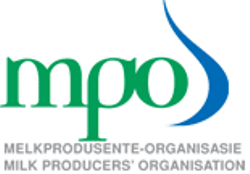Labour law sets strict requirements that employers must comply with. These requirements are not negotiable and to comply consistently is a huge challenge, especially when human relations come into play. Human relations contribute to the uniqueness of every workplace with regards to different personalities, attitudes, background, culture, etc.
It is the employer’s right to exercise control in the workplace by implementing rules and applying discipline. Effective communication promotes positive relationships within the workplace and limits friction that can lead to conflict.
Conflict in the workplace
Conflict in the workplace is a common phenomenon. It typically occurs as follows:
- Disagreements between employees themselves, as well as with the employer.
- Management style of managers.
- Diverse personalities.
- Annoying behaviour.
- Employees feel that certain other employees are “favoured” by management.
The well-known adage “a stitch in time saves nine” definitely applies. Conflict has a huge impact in the working environment and can quickly escalate to bigger disputes that could have been prevented, if the employer handled it correctly. Employers must address the following four components:
- Establishing goals:
Set achievable goals for employees. Employees need to know what is expected of them and what standard applies to performance. Continuous evaluation and training is essential to assess work performance. Give recognition to employees who achieve goals and perform well. Positive competition between employees are also healthy.
- The disciplinary code:
Every workplace must have a relevant disciplinary code. The disciplinary code is important to ensure that there are clear rules in the workplace for employees to follow. When these rules are broken, the employer can apply discipline in accordance with the applicable sanctions as listed in the code.
- Communication:
Effective communication creates an environment receptive to growth. Employers must consult regularly with employees (individually or in a group), and also keep record of these consultations. This creates a platform for employees to discuss their thoughts, ideas and any specific needs.
- Grievance procedure:
It is imperative that the employer establish internal procedures to give employees the opportunity to bring any unhappiness or unsatisfactory working conditions to the attention of the employer.
The relationship between the employer and employee is based on mutual benefits and respect. An organised and positive working environment directly contributes to productivity.
Read the Afrikaans-article in the March issue of the Dairy Mail.
Published on Monday, 10th February 2020 - 04:54
Recent Posts
disclaimer









